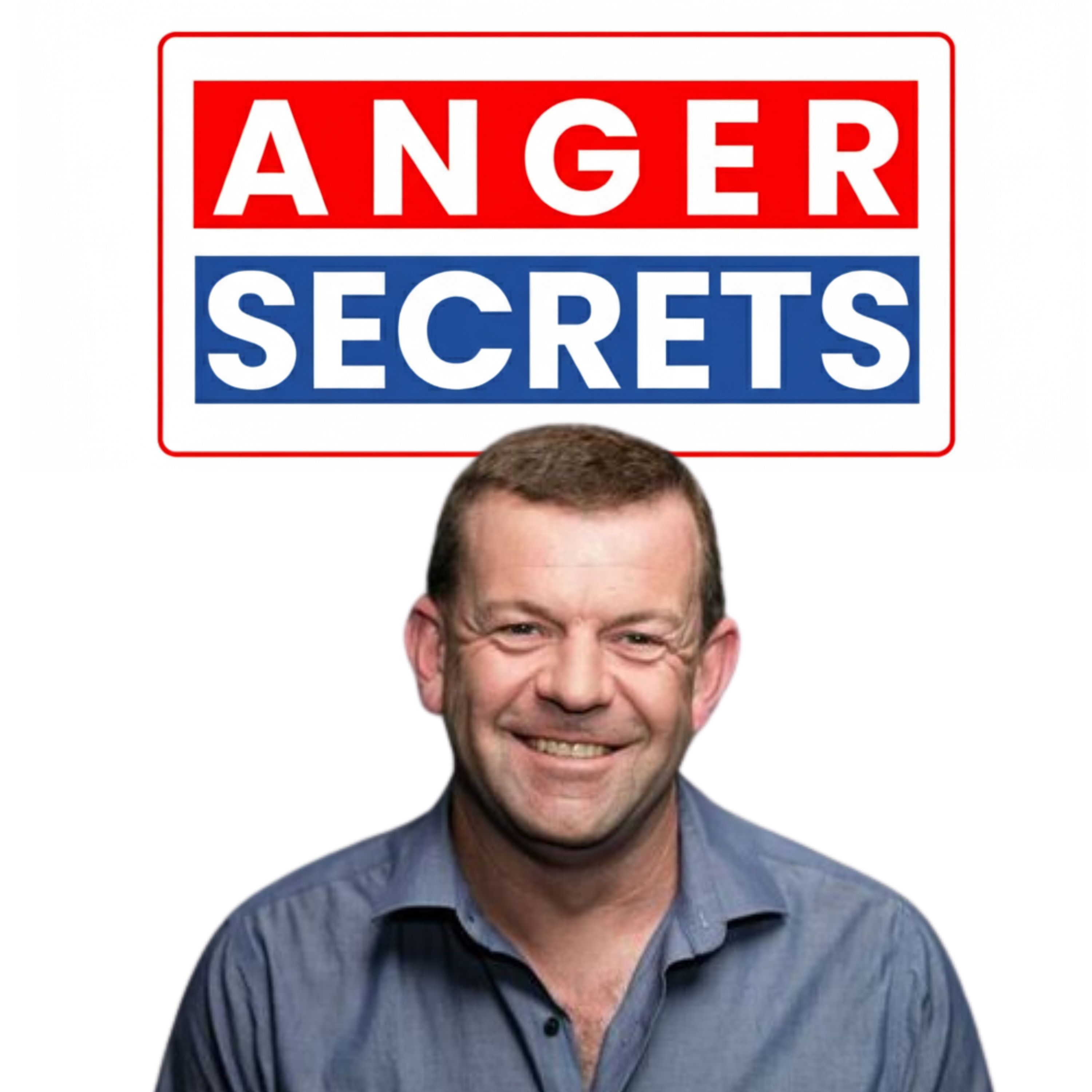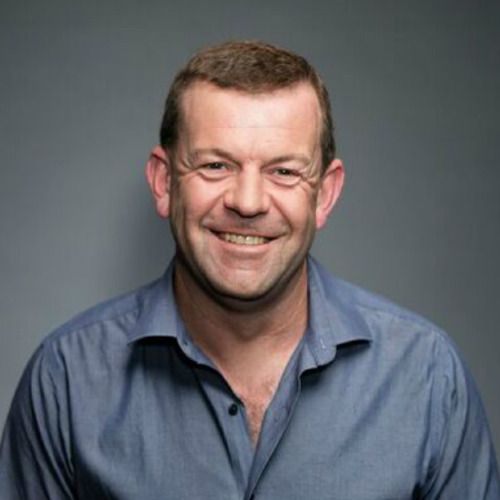Episode 135
135 - How I Took Control of My Anger: Simon's Story
For more information on how to control your anger, visit angersecrets.com.
Change is possible, even after anger has caused hurt and broken trust. In this episode, anger expert Alastair talks with Simon, a husband and father whose anger impacted his family life.
Simon shares his journey of recognising his anger patterns and taking responsibility for his actions. He emphasises that the path to change starts with oneself and that it’s never too late to become a better person.
By the end of their conversation, listeners will see how facing the truth about anger can lead to calmer, happier and more respectful relationships.
Key Takeaways:
- Anger's impact on relationships can be severe, causing fear and hurt in loved ones.
- Taking responsibility for one's own anger is vital for making real changes in life.
- Listening and understanding others is essential for building better communication skills.
- It's never too late to change and become the person you want to be, no matter the past.
Links referenced in this episode:
For more information (and FREE resources) of how to control your anger, visit angersecrets.com.
For a FREE training on how to control your anger, visit angersecrets.com/training/.
To learn more about The Complete Anger Management System, visit angersecrets.com/course/.
Transcript
You walk through the door after a long day and you can feel it.
Speaker A:The tension, the tightness in the air, the way everyone goes quiet, bracing themselves, waiting for the next explosion.
Speaker A:You don't want to be that person.
Speaker A:You don't want to be the reason your family is scared.
Speaker A:But somehow anger wins again.
Speaker A:And afterward, you're left sitting alone with the wreckage, thinking, how did I let it get this far?
Speaker A:So have you ever promised yourself you'd stay calm only to watch yourself lose it again anyway?
Speaker A:Have you ever seen the fear or hurt in someone's eyes and felt that wave of guilt and regret crash over you?
Speaker A:Have you ever wondered if it's too late to fix the damage?
Speaker A:If any of that sounds familiar?
Speaker A:Today's episode is for you, because change is possible, even after the hurt, even after the trust is broken, if you're willing to face the truth and fight for something better.
Speaker A:Hello, I'm Alistair Darze, and welcome to episode 135 of the Anger Secrets podcast.
Speaker A:Over the past 30 years, I've helped more than 15,000 men and women control their anger, master their emotions, and rebuild calmer, happier, and more respectful relationships.
Speaker A:If you're ready to start taking back control of your anger today, you can get free resources and support@AngerSecrets.com but I'll tell you more about that later.
Speaker A:Today you'll hear from Simon, a husband and father whose anger tore his marriage apart, but also a man who found the courage to face his own patterns.
Speaker A:Simon realized that change couldn't come from blaming others.
Speaker A:It had to start with him.
Speaker A:I hope that by the end of this conversation, you'll see that no matter how much hurt there's been, no matter how stuck you feel, it's never too late to become the person, the partner and the parent you want to be.
Speaker A:Let's dive into my conversation with Simon.
Speaker B:Welcome to the Angus Secrets podcast.
Speaker B:Could you just tell me a bit about yourself?
Speaker C:I'm 49, been married for 10 years, been together for 12.
Speaker C:My wife, she had previous children when we met, they were three and four and only recently, I suppose a year or so broken up with a previous partner.
Speaker C:So domestic violence and.
Speaker C:Yeah, so we moved around a fair bit, though, from place to place with work and things like that, so that wasn't very good for the children.
Speaker C:And, yeah, things didn't get right.
Speaker C:And then everything built up and the marriage went down further and more arguments and fights and everyone getting angry with each other and.
Speaker C:Yeah, so then we've separated once before and now we've separated Again, hopefully not permanently, but yeah, hopefully doing this course.
Speaker C:I'm hoping to get back on track and be able to repair the damage I've done and see myself and reflect on myself and become a better person for not just myself, but for my family as well and people around me.
Speaker C:That's the biggest thing.
Speaker B:So was there a specific incident that brought you to the anger management course?
Speaker C:Yeah, just my wife telling me that I'm stuck in my own head creating all these things and just self destruction, she called it.
Speaker C:That sort of opened my mind up and so I thought, I have to do something about it.
Speaker C:And I had a look at a few different podcasts out there, but I don't know, I just felt more comfortable with yourself and how you're approaching the subject and so on.
Speaker C:So, yeah, that's why I thought I'd stick with this one.
Speaker B:Cool.
Speaker B:So how much of an issue was anger or arguments in your relationship?
Speaker C:I would get home and stew on things.
Speaker C:I wouldn't let things go.
Speaker C:That was, I feel, my biggest issue.
Speaker C:I wouldn't let things go.
Speaker C:And that was the build up.
Speaker C:So each I'd get.
Speaker C:The tension was there between myself and then as I walk in the room, the tension was there with everyone.
Speaker C:They were just waiting for me to say something like, oh, my dishes are out or whatever it may be.
Speaker C:You haven't done this, you haven't done that, you've done your homework, and so on.
Speaker C:So, yeah, I was always attacking rather than just accepting at the end of the day that things happen or they don't want to do it.
Speaker C:But yeah, not listening and just being in my own head, that was the biggest thing.
Speaker B:And when did you start to realize this?
Speaker C:Unfortunately, it was all a bit too late, I guess, because, yeah, I was trying to repair the relationship with my stepdaughter and she was not wanting to be there and talk to me.
Speaker C:I'd come into the room, she'd leave and go into her room or ignore me and things like that.
Speaker C:And that sort of got to me.
Speaker C:And then after the separation, that sort of started dwelling on me, everything, like building on me and realized, wait a minute, I can't keep being like this.
Speaker C:I'm going nowhere, I'm actually going backwards and I'm losing everyone out of my life that I care about.
Speaker B:Yeah, it sounds sad.
Speaker B:Yeah.
Speaker B:And how much was that due to anger and how much was it due to other things?
Speaker C:I think the anger was part of it, definitely, because the way I was speaking to them and acting towards them.
Speaker C:So I was, yeah, pretty Aggressive in that sense.
Speaker C:I'd never throw things or anything like that.
Speaker C:But my demeanor and my words were probably the biggest damage.
Speaker B:Okay.
Speaker C:And yeah, so you've been in my.
Speaker B:Anger management course maybe six or seven weeks or something like that.
Speaker B:What's been the main things you've learned so far?
Speaker C:To be able to just control my thoughts and just stop and listen a bit more.
Speaker C:That's the thing I'm practicing more on now is just calming down rather than assuming, you know, everything and trying to make your world perfect rather than everyone else's.
Speaker C:Yeah.
Speaker C:So that's the thing.
Speaker C:I feel I've just got to stop, listen more and listen to their feelings rather than how I feel.
Speaker C:Because it's not just about me.
Speaker C:That's my biggest downfall.
Speaker C:I feel that's great.
Speaker B:And how easy or hard has it been to calm down in this way?
Speaker C:Yeah, it takes a while and it's still practice.
Speaker C:Still practicing.
Speaker C:I don't know if I'll ever get perfect at it, but you just gotta try.
Speaker C:That's the thing.
Speaker C:The listening is.
Speaker C:And stopping is the biggest thing.
Speaker B:Has anyone noticed changes in you so far?
Speaker B:Yeah.
Speaker C:Yeah.
Speaker C:A few friends have and just the discussions now having with people gets a bit deeper because just asking more questions rather than just assuming.
Speaker C:I know.
Speaker C:So.
Speaker C:Yeah.
Speaker C:Just not trying to be the smartest person in the room, I guess.
Speaker C:I always told my daughter and my kids, the dumbest person in the room is the person that thinks they know it all and doesn't listen.
Speaker C:And that was me.
Speaker C:I see that now.
Speaker B:It's an important realization, isn't it?
Speaker C:Yeah.
Speaker C:And I was doing it to my family.
Speaker C:Yeah.
Speaker B:What about doing an online course?
Speaker B:How's that been for you?
Speaker C:It's been great because the work I do, I'm at work for two weeks on and two weeks off.
Speaker C:So whenever I get spare time, I can do it or just listen to the programs and stuff like that while I'm at work or whatnot.
Speaker C:Even driving, I've listened to them.
Speaker C:So, yeah, the online course suits me really well.
Speaker C:Being able to access at any time of the day.
Speaker C:Yeah.
Speaker B:What would you say the differences between the podcasters and the online course?
Speaker C:Just the way it's structured, the way where the podcasts.
Speaker C:You're jumping everywhere, so you're getting little bits and pieces.
Speaker C:You're not getting the flow, so it just delivers it nicely and keeps you stepping through your progress.
Speaker B:Great.
Speaker C:I'm up to the listening stage now, so I need to practice that as well.
Speaker B:Practice makes perfect.
Speaker B:So if someone's listening to this interview and thinking about doing my anger management course.
Speaker B:What would you say to this person?
Speaker C:Definitely, I think an anger management course would be good for everyone.
Speaker C:Personally.
Speaker C:It just clarifies how you should be treating other people.
Speaker C:And it's a good program, easy to follow.
Speaker C:Like I said, anytime you can access it.
Speaker C:So that's the beauty of it.
Speaker C:With the busy world nowadays, everyone doesn't have much time, especially with family and work.
Speaker C:So that aspect of, like I said, I drive along and I can access it.
Speaker C:So I think it's a great thing, just like I said, for everyone to do just to build a better relationship for your family and.
Speaker C:Yeah.
Speaker C:And your friends and so on.
Speaker C:But yeah, it's a good course.
Speaker B:Well said.
Speaker B:And how much change do you think you've made so far?
Speaker C:I feel a big change in myself.
Speaker C:Before I was fairly depressed and, yeah.
Speaker C:Anxious.
Speaker C:Very anxious with things just day to day.
Speaker C:I was really tight in the chest all the time.
Speaker C:Now I've changed dramatically.
Speaker C:And just that mindset of, rather than being negative, I'm being more positive.
Speaker C:So that's.
Speaker C:I'm getting things done and doing things and that's the best thing, achieving results now.
Speaker B:And I bet that's both good for yourself and everyone else around you, right?
Speaker C:Yeah, definitely.
Speaker C:Kids have noticed it when we're going out and doing things rather than sitting around watching television, just counting the hours by sort of thing.
Speaker C:And so now I'm.
Speaker C:Yeah.
Speaker C:And it's better for them, too.
Speaker C:We're out riding bikes, playing basketball, going fishing or just even going for fish and chips, whatever it may be.
Speaker C:We're just getting out more.
Speaker C:Yeah.
Speaker B:Very good.
Speaker B:And anything else you'd like to say?
Speaker C:Yeah, like I said, I think the program's for everyone.
Speaker C:No matter what you'll get something out of may help you understand other people as well and where they're at and.
Speaker C:Yeah.
Speaker C:Help A better communication.
Speaker C:I think that's the biggest thing is communicating and listening skills is my biggest part.
Speaker C:I take from it anyway.
Speaker C:Yeah.
Speaker B:Anger management is one part.
Speaker B:But learning to communicate better is really important as well.
Speaker C:Yeah, definitely.
Speaker C:It's.
Speaker C:Yeah.
Speaker C:And just listening to people, how they feel rather than just assuming how you think they feel.
Speaker C:Yeah.
Speaker C:Is a big part of it.
Speaker C:So that's the beauty of the course.
Speaker C:It calms you down, but then builds your knowledge of communication and other people's feelings rather than just your own.
Speaker C:I suppose because you're not the only person in the room that is important.
Speaker A:Hearing Simon's story is a powerful reminder of something important.
Speaker A:Change doesn't happen overnight, and it doesn't happen without courage.
Speaker A:Simon's journey shows that anger doesn't just hurt the people around us, it can tear us away from the relationships, the trust and the peace we want most.
Speaker A:But his story also shows something even more powerful that when you stop blaming, when you stop running, and when you take full responsibility for your actions, real change becomes possible.
Speaker A:Even when it's hard, even when relationships are damaged, even when it would be easier to give up.
Speaker A:Today, Simon is calmer, more in control and more connected to his kids and more proud of the man he's becoming.
Speaker A:And if you take nothing else from today's conversation, I want you to remember it's never too late to change.
Speaker A:It's never too late to take responsibility.
Speaker A:It's never too late to become someone you and the people around you can be proud of.
Speaker A:Okay, that's it for today's episode on Simon's Story of Change.
Speaker A:If this episode helped you, it would mean a lot to me if you hit follow and leave a quick review in your favourite podcast app.
Speaker A:It helps other people find this show and it might just be the thing that helps someone else take back control of their life.
Speaker A:And remember, if you want free support, free training, or a free one on one call to see how I can help you control your anger, Visit my website angersecrets.com and if you're ready to dive deeper and finally get your anger under control for good, head to angercrets.com course to learn more about the complete anger management system.
Speaker A:Finally, I'll leave you with can't control what other people do, but you can control yourself.
Speaker A:And that, more than anything, is where your true power is.
Speaker A:Take care and I'll see you in the next episode.
Speaker D:The Anger Secrets podcast is for general informational purposes only and does not constitute the practice of counseling, psychotherapy or any other professional health service.
Speaker D:No therapeutic relationship is implied or created by this podcast.
Speaker D:If you have mental health concerns of any type, please seek out the help of a local mental health professional.


